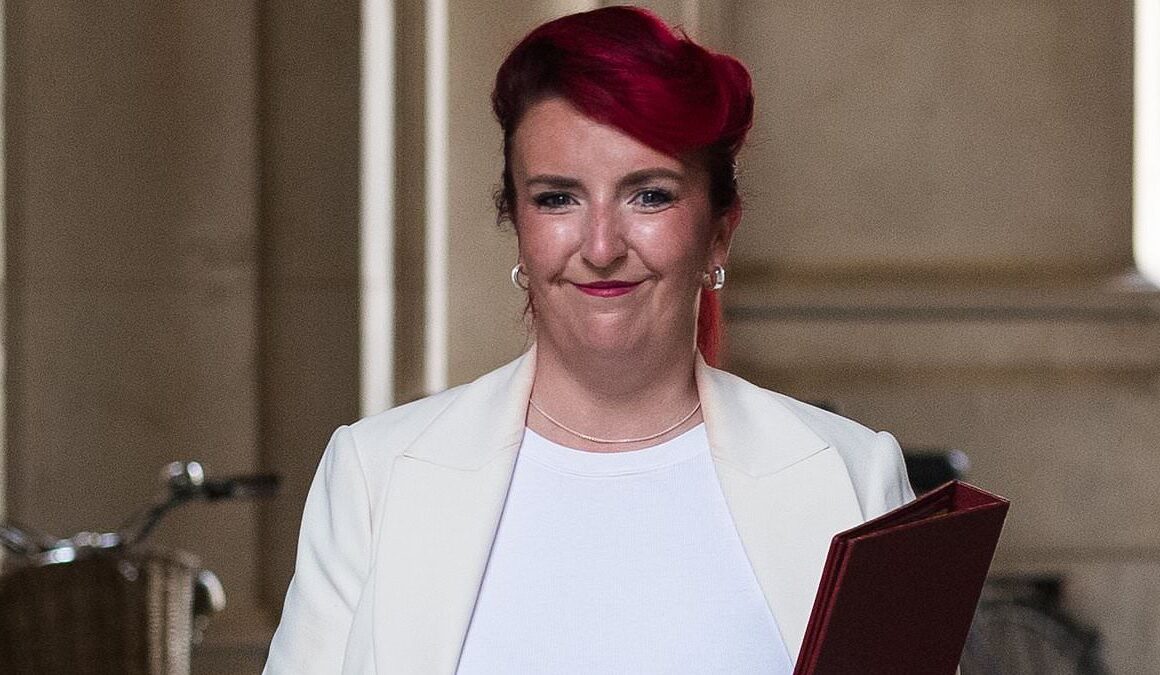Rail unions are looking to ‘cash in’ now that Labour is in power by demanding double-digit pay hikes for drivers, it can be revealed.
Bosses at Aslef have told the Government they want salary increases of at least 10 per cent for drivers after talks restarted last month.
This is up by a quarter from the 8 per cent offered by the Tory government, which would have increased the average driver’s salary from £60,000 to £65,000.
The union also wants Labour to ditch reforms to antiquated and costly working rules, dubbed ‘Spanish practices’, as a condition of any pay hikes.
Sources close to Transport Secretary Louise Haigh did not rule out the idea of 10 per cent increases, although she is understood not to have yet taken part in talks.

Bosses at Aslef have told the Government they want salary increases of at least 10 per cent as talks restarted last month

Sources close to Transport Secretary Louise Haigh (pictured) did not rule out the idea of 10 per cent increases for train drivers, although she is not thought to have taken part in talks yet
However, if ministers do cave in to the demands, it will spark fresh accusations that the unions are Labour’s ‘paymasters’.
The Tories’ 8 per cent offer was repeatedly snubbed by Aslef chief Mick Whelan, who is a close ally of Ms Haigh and sits on Labour’s powerful National Executive Committee.
Ms Haigh has previously promised to work ‘hand in glove’ with Mr Whelan. Inflation is currently hovering around 2 per cent. It comes after Labour signed off a 5.5 per cent pay increase for most public sector workers, which will cost taxpayers an estimated £9.4billion.
It has also offered junior doctors a 22 per cent pay hike, to cost an extra £1.1billion, and is preparing to cave into union barons by this week announcing plans to repeal anti-strike legislation.
The measures will effectively give a ‘green light’ for strikes across the NHS, schools, ambulance service, Border Force, rail and fire services, critics claim.
The Employment Rights Bill will scrap the requirement of ‘minimum service levels’ which the Tories brought in last year.

The previous government’s eight per cent offer was repeatedly snubbed by Aslef boss Mick Whelan (pictured), who sits on Labour’s powerful National Executive Committee
They were meant to limit the impact of strikes by forcing union leaders to provide a minimum level of services on strike days.
Ministers are also looking to repeal the 2016 Trade Union Act, which made it harder for unions to organise strikes. It included a requirement that 40 per cent of members must approve action on a 50 per cent turnout, limiting its frequency and extending the notice period unions must give employers to two weeks.
Former Tory leader Sir Iain Duncan Smith said: ‘Once you give in to one lot, everybody else queues up. The unions are Labour’s paymasters at the end of the day. And unlike under [Sir Tony] Blair, we don’t know where [Sir Keir] Starmer really is in the political sphere.’
A Department for Transport spokesman said Ms Haigh wants to reset industrial relations, adding: ‘To that end, transport officials have resumed talks with Aslef as we look to resolve this long-running dispute.’









